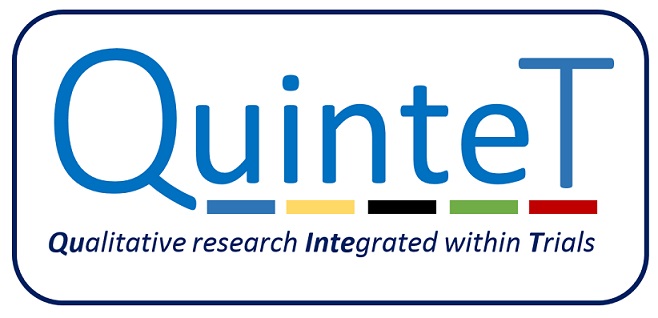The Integrated QRI (for RCTs that anticipate recruitment challenges)
The QuinteT Recruitment Intervention (QRI) seeks to optimise recruitment and informed consent in randomised controlled trials (RCTs) – particularly those that are experiencing, or anticipated to experience, recruitment difficulties. The QRI has evolved from Professor Jenny Donovan’s pioneering embedding of a complex recruitment intervention in the ProtecT trial (BMJ 2002). It has subsequently been successfully integrated into around 60 RCTs. The QRI assimilates both investigative and interventional approaches: recruitment issues are identified rapidly, and tailored solutions are designed and delivered while the trial is in progress. This work is carried out in two iterative phases: Phase I, and Phase II.
Phase I aims to identify the key obstacles to recruitment by developing a detailed understanding of the trial and its recruitment processes. The methods employed to achieve this will vary depending on the context of the trial, but may include: observation and/or audio-recording of trial recruitment appointments and investigator meetings, interviews with trial staff and patients, and scrutiny of trial documentation and screening logs. Given the focus on applied research, the QuinteT team have also pioneered - and continue to develop - innovate methods that facilitate rapid production of robust findings that have contributed to this work (e.g. targeted conversation analysis (Wade et al., 2009), the QQAT method (Paramasivan et al., 2015)).
Phase II aims to use the findings from Phase I to design a ‘plan of action’ in collaboration with the trial investigator team. Phase I findings are presented to the trial investigators, and where appropriate, tailored interventions are developed with a view to addressing specific recruitment challenges. Interventions will vary according to need, but may include individual or group feedback/training for recruiters, amendments to trial documentation, and dissemination of purposefully-written guidance for recruiters.
While improvement to recruitment is the principle focus of the QuinteT team’s work, the QRI can also help to build evidence that contributes towards trial investigator teams’ decisions to proceed towards early trial closure, promoting efficiency in research budgets and time.
For further details, please see the published article Optimising recruitment and informed consent in randomised controlled trials: the development and implementation of the QuinteT Recruitment Intervention (QRI)

